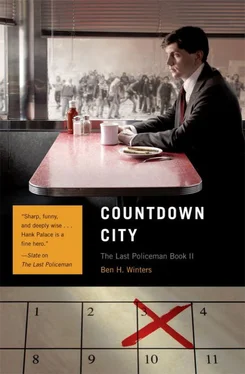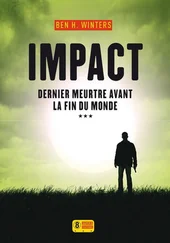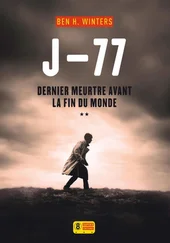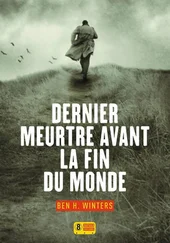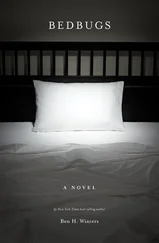“See, I had a friend,” says our host from behind his glass-top desk. “An acquaintance, really, who owed me just a disgusting amount of money. This was last December. And you know, I had a feeling how this was going, this business with the asteroid. It was in the darkness still, hidden by the moon.”
When he mentions the asteroid, he gets a sort of wistful contented glimmer in his eye, like it’s the best thing that ever happened to him. Conjunction, is what he means. In December 2011GV 1was still in conjunction, aligned with the sun and impossible to observe. It was not “hidden by the moon.” My eyes have landed on the water—boxes of jugs, ten jugs to the box, two stacks of ten boxes, side by side. Twelve jugs of water per box times ten times two.
“And this cat, this poor fellow, I went to him and said, look, forget the money. Because this guy, when he wasn’t making bad bets on sports, he was the manager of the Office Depot in Pittsfield. And the thing about Office Depot is that they don’t have just office things. They have a really extraordinary variety of merchandise.”
He sounds like a commercial for Office Depot, and he knows he does. He laughs, tosses his shoulder-length hair.
“Anyway, so the shit goes down, they say the world’s gonna end, and I’m in a position, you know? I had a copy of this guy’s keys, I had some friends lined up, I had a truck set aside, I had some gasoline.” He winks again. He shrugs. “So I obtained an Office Depot.”
“ We did, Cortez,” says Ellen, curtly. “We obtained it.” She’s at the door of the empty stairwell, still holding her butcher knife.
Cortez grins at me, rolls his eyes slightly, like we’re in cahoots, he and I, boys versus girls. I study him, long black hair, bulging forehead, jutting jaw—he reminds me of a houseguest we had once when I was a child, a noted poet my father invited to give a lecture at St. Anselm’s. My mother said he was “ugly, in that handsome sort of way.”
I take another look at Martha, make sure she’s okay. She’s sitting down at a desk; the room is full of desks, glass-topped desks, hutch desks, imposing oak-top desks; many of them with locked drawers. A room full of stashes, hidden places, things squirreled away.
“Do you know this man?” I say, bringing the photograph of Brett out of my pocket.
Cortez gasps theatrically, puts his hands in the air. “Oh my God, you’re a fucking policeman.”
“No, sir.”
“Do it again,” he says, grinning. “With the picture. Ask me again.”
I place the photograph down in front of him. “Do you know this man?”
He slaps his desk, delighted. “A real-life policeman. It’s like an acid flashback.”
“Yes,” says Ellen quietly, from her side of the room, still holding the butcher’s knife. “We know him. He was here yesterday. You’re his wife?”
Cortez gives Ellen an irritated look while Martha nods, her eyes filling with refreshed hope as she looks around the room. She’s thinking, here—in this room . She’s reveling in the fact of his proximity, in space if not in time: He was here .
“Yes. He was here.” Cortez is looking me over, up and down, marveling still at the real-live policeman. “And he said that the woman would be coming alone, which is why I shot you with my staple gun.”
“It’s okay,” I say.
“I did not apologize.”
“Can I just…” Martha swallows. Her hands are trembling. She looks from Ellen to Cortez and then back to Ellen. “What did he want?”
“Stuff,” said Cortez simply.
“What?” says Martha.
I’m looking around again: the desks, the filing cabinets, the boxes of impulse-purchase nonfoods, fruit snacks and goldfish crackers and granola bars.
“What do you mean, what?” says Cortez, grinning. “That’s what he wanted. Stuff! Stuff for you , sweetheart.”
“I’m sorry,” says Martha. “I don’t understand.”
“Oh, honey,” says Ellen, glaring at Cortez, laying her hatchet down at last and putting an arm around Martha. “He paid us to take care of you. Until afterward.”
“Take care of?” says Martha, eyes wide. “What does that mean?”
“It means, give a bunch of fucking shit to .” Cortez sidles over to their side of the room and scoops up the big knife. “It means, not let to become dead .”
“Shut up, Cortez,” says Ellen. “It means he paid up front for us to provide enough stuff for you to make it till the end. Food, water, batteries, flashlights, clothes, tampons. Whatever.”
“And if you’re afraid of things going bump in the night, we do protection.” Cortez walks back to his desk, slides Ellen’s butcher knife into a drawer. “Right up until the end.”
“But not afterward?” I ask.
“Afterward?” Cortez cackles, kicks his legs up on the desk like a corporate raider. “Anyone making promises for afterward is a liar and a thief.”
I’m holding my bloody forehead, thinking this through, realizing along with Martha exactly what it means. Brett wanted her to be taken care of, which is a nice thing, except it means he knew that he was leaving. There is no longer any question of accident or foul play. Brett Cavatone left his wife with foresight, efficiency, and decisiveness. Martha is staring straight ahead, lost behind the large desk like a schoolchild in her daddy’s office.
“Excuse me,” she says, suddenly sitting up straight, her voice carefully controlled. “Do you have any cigarettes?”
“Yes, honey,” says Ellen, unlatching a trunk the size of a small bathtub. “Thousands of them.”
The pain from my new injury has reignited an old one, like a pinball bouncing against a bumper and lighting it up: a raw spot where I was once stabbed, just below my left eye. It was the drug dealer who stabbed me, the one whose dog is at my house right now, waiting to be fed.
“This protection. This is a service you offer?” I ask Cortez. “Have been offering?”
“It is.” He grins. “You interested?”
“No, thank you. How do people pay you for this service?”
“Stuff,” he says, the strong chin, the lopsided grin. “More stuff. Things I can turn around and offer to other folks. Items I can hang on to for a rainy day. For the big rainy day.”
“How did he pay you?” I say, holding up the photograph again.
“Ah!” Cortez rubs his hands together, eyes gleaming like coins. “You want to see?”
* * *
Pieces of metal, hunks of metal, scraps and stacks of it. Gleaming silver, contoured black plastic, glass and dials. I look at the pile, look at Cortez.
“It’s a vehicle.”
Cortez waggles his eyebrows mysteriously, having fun. We took the elevator down together in silence and then had to go outside, around the back, and down a rickety flight of basement stairs accessible now only by a sidewalk trapdoor. The basement of 17 Garvins Falls has a concrete floor, dim overhead bulbs hooked up to a noisy and foul-smelling biofuel generator. I lift one long flat plane of reinforced iron and find words painted on the other side in a childlike comic-book font: CALIFORNIA: GOLD RUSH COUNTRY!
“A U-Haul,” I say, and Cortez’s jagged grin widens. “Can you believe it?”
I can. I do. Rocky Milano was lying: he didn’t have his beloved son-in-law and right-hand man hauling furniture around the county on a ten-speed bicycle. That’s how a restaurant stays open: get ahold of a working vehicle, scam or barter for a supply of gas or some bootleg biofuel, make a reliable map of DOJ checkpoints to be avoided. No wonder Rocky is so aggrieved. He didn’t just lose a son-in-law and a top employee; he lost his most valuable capital asset. I wish I could go back to that room and ask him again, press him on all the half-truths and evasions. I’m not a cop, I’d say. I’m just a guy trying to help your daughter.
Читать дальше
